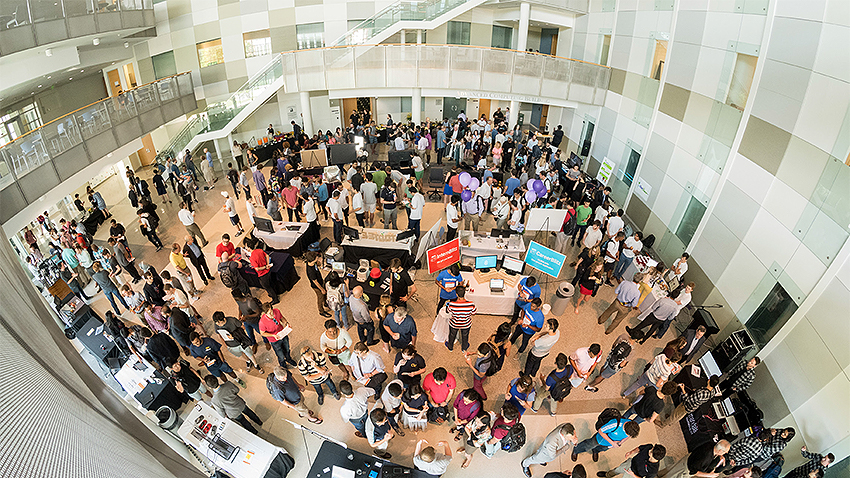Upcoming Events
Cybersecurity Lecture Series with Mathias Payer

"Why Memory Corruption is Hard"
Memory corruption has plagued systems since the dawn of computing. With the rise of defense techniques (such as stack cookies, ASLR, and DEP), attacks have become much more complicated, yet control-flow hijack attacks are still prevalent. Attacks rely on code reuse, often leveraging some form of information disclosure. Stronger defense mechanisms have been proposed but none have seen wide deployment so far due to the time it takes to deploy a security mechanism, the incompatibility with systems/software, and most severely due to performance overhead. In this talk, we evaluate the security benefits and limitations of the status quo and look into upcoming defense mechanisms (and their attacks).
Control-Flow Integrity (CFI) and Code-Pointer Integrity (CPI) are two of the hottest upcoming defense mechanisms. CFI guarantees that the runtime control flow follows the statically determined control-flow graph. An attacker may reuse any of the valid transitions at any control-flow transfer. CPI on the other hand is a dynamic property that enforces memory safety guarantees integrity of code pointers by separating code pointers from regular data. We will discuss differences and advantages/disadvantages of both approaches, especially considering their security guarantees and performance impacts, and look at strategies to defend against other attack vectors like type confusion.
Mathias Payer is a security researcher and an assistant professor in computer science at Purdue University, leading the HexHive group. His research focuses on protecting applications even in the presence of vulnerabilities, with a focus on memory corruption. He is interested in system security, binary exploitation, software-based fault isolation, binary translation/recompilation, and virtualization. In 2014, he founded the “b01lers” Purdue “Capture the Flag” team. Before joining Purdue in 2014, he spent two years as a postdoctoral researcher in Dawn Song's BitBlaze group at the University of California Berkeley. He graduated from ETH Zurich with a Doctor of Sciences in 2012. All implementation prototypes from his group are open-source.
Organized by the Institute for Information Security & Privacy, the free and open-to-the-public Cybersecurity Lecture Series meets throughout the fall each Friday at Noon on the Georgia Tech campus, August – December. Invited speakers include executives and researchers from Fortune 500 companies, federal intelligence agencies, start-ups and incubators, as well as Georgia Tech faculty and students presenting their research.
Event Details
Media Contact
Lindsey Panetta, lindsey.panetta@gtri.gatech.edu
EVENTS BY SCHOOL & CENTER
School of Computational Science and Engineering
School of Interactive Computing
School of Cybersecurity and Privacy
Algorithms and Randomness Center (ARC)
Center for 21st Century Universities (C21U)
Center for Deliberate Innovation (CDI)
Center for Experimental Research in Computer Systems (CERCS)
Center for Research into Novel Computing Hierarchies (CRNCH)
Constellations Center for Equity in Computing
Institute for People and Technology (IPAT)
Institute for Robotics and Intelligent Machines (IRIM)